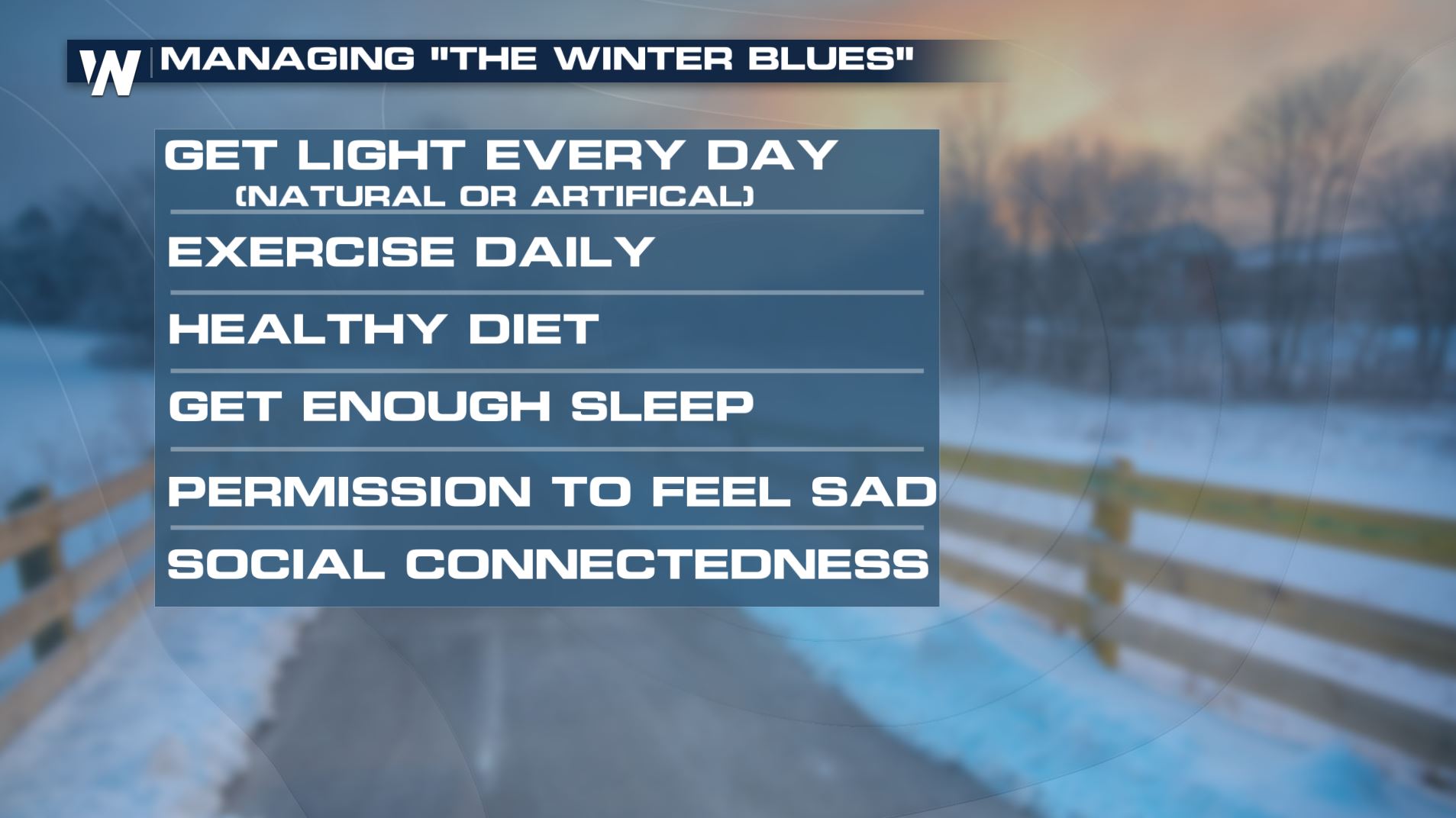VIDEO: Are you feeling the "winter blues"?
Special Stories
15 Feb 2019 12:23 PM
This time of year is tough for many people, as the cold and darkness of winter take a toll on our bodies.
According to the American Psychiatric Association, seasonal affective disorder (also known as SAD) is a form of depression. People with SAD experience mood changes and symptoms similar to depression. The symptoms usually occur during the fall and winter months when there is less sunlight and usually improve with the arrival of spring. The most difficult months for people with SAD in the U.S. tend to be January and February. While it is much less common, some people experience SAD in the summer.
SAD is more than just “winter blues.” The symptoms can be distressing and overwhelming and can interfere with daily functioning. However, it can be treated. About 5 percent of adults in the U.S. experience SAD and it typically lasts about 40 percent of the year. It is more common among women than men.
SAD has been linked to a biochemical imbalance in the brain prompted by shorter daylight hours and less sunlight in winter. As seasons change, people experience a shift in their biological internal clock or circadian rhythm that can cause them to be out of step with their daily schedule. SAD is more common in people living far from the equator where there are fewer daylight hours in the winter.
https://youtu.be/AwEkVtp0HuU
WeatherNation's John Van Pelt spoke with clinical psychologist Dr. Joshua Klapow about SAD and how to manage it.
"There are a lot of self help techniques that you can use, and they're simple things," said Dr. Klapow, " number one is making sure you get exposure to daylight. If it's too cold to go outside, even indirect daylight is very important...2-3 hours per day. Also make sure you get regular exercise...it boosts the metabolism."
Dr. Klapow also recommends getting enough shut-eye. Maintaining a regular sleep cycle can help our bodies stay on track. A healthy diet and drinking enough water also can help our bodies fight SAD.
 Feelings of sadness are manageable in the winter by taking care of ourselves. However, Dr. Klapow suggests if the symptoms and feelings are severe, you should see a mental health professional to determine if you do have seasonal affective disorder. A professional can help you cope and manage the effects of seasonal depression.
Feelings of sadness are manageable in the winter by taking care of ourselves. However, Dr. Klapow suggests if the symptoms and feelings are severe, you should see a mental health professional to determine if you do have seasonal affective disorder. A professional can help you cope and manage the effects of seasonal depression.
 Feelings of sadness are manageable in the winter by taking care of ourselves. However, Dr. Klapow suggests if the symptoms and feelings are severe, you should see a mental health professional to determine if you do have seasonal affective disorder. A professional can help you cope and manage the effects of seasonal depression.
Feelings of sadness are manageable in the winter by taking care of ourselves. However, Dr. Klapow suggests if the symptoms and feelings are severe, you should see a mental health professional to determine if you do have seasonal affective disorder. A professional can help you cope and manage the effects of seasonal depression.
All Weather News
More